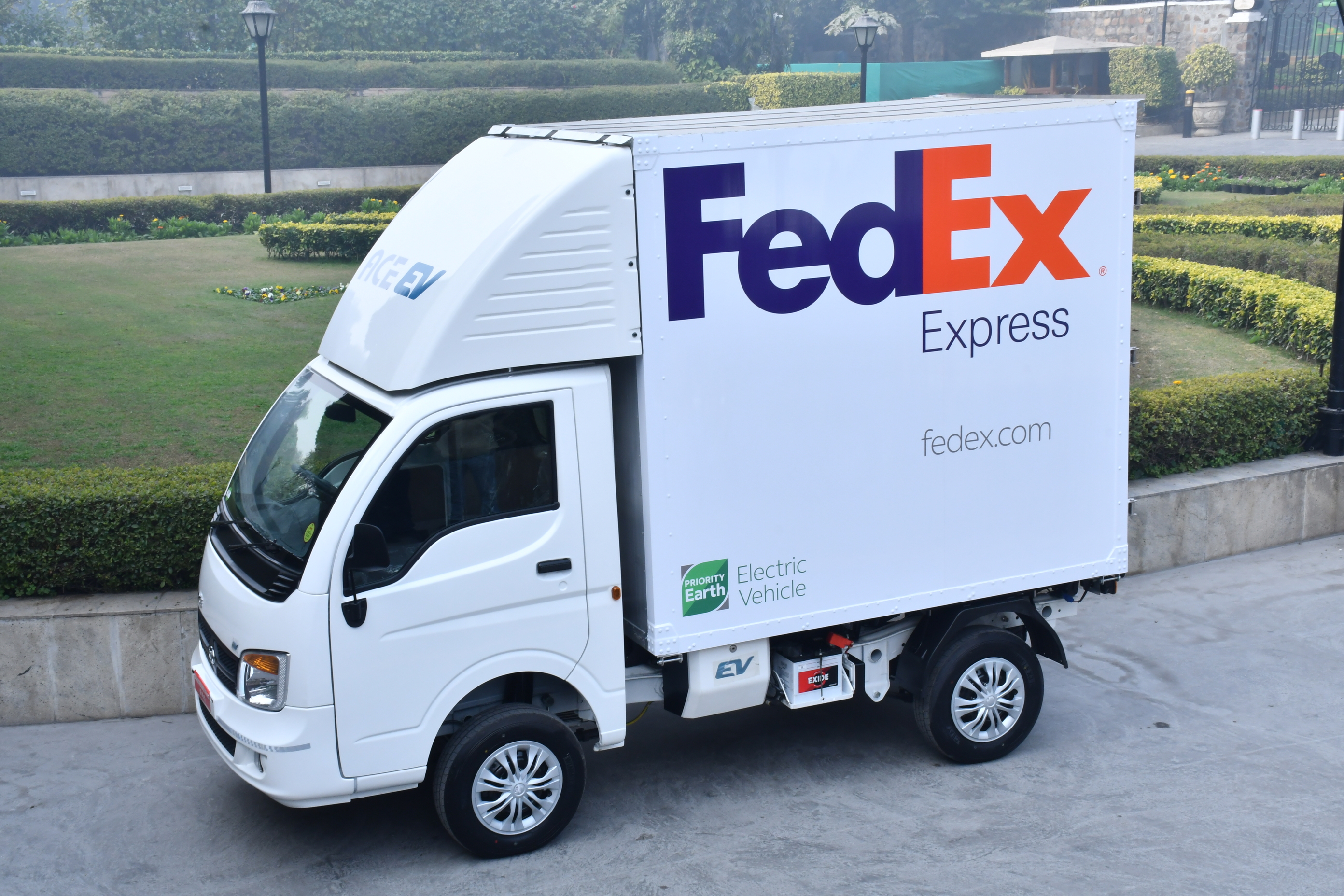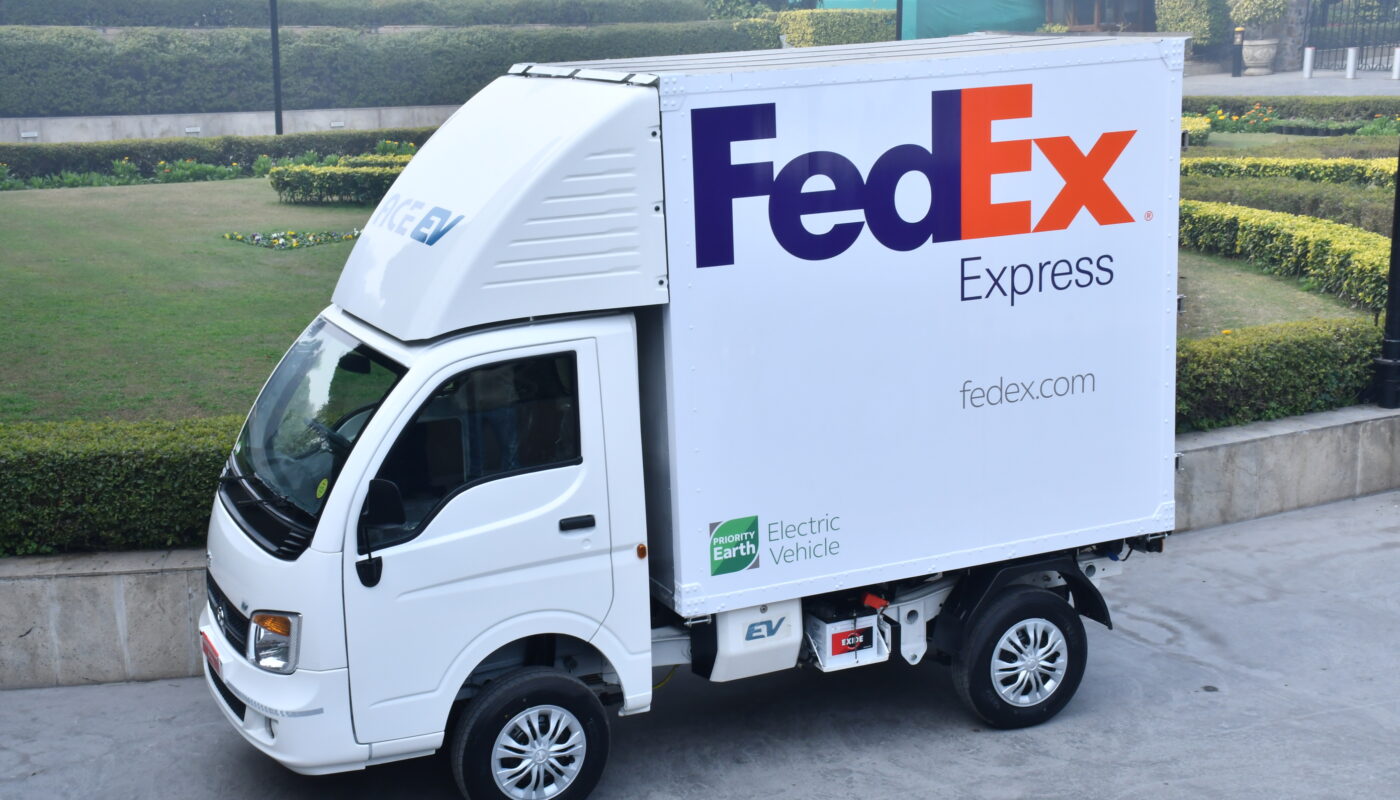FedEx deploys electric vehicles to advance sustainability goal of zero-emissions last-mile delivery in India
by Prashant Kapadia/NHN
New Delhi, January 9, 2023: FedEx Express (FedEx), a subsidiary of FedEx Corp. (NYSE: FDX) and the world’s largest express transportation company, is deploying 30 electric delivery vehicles in Delhi as part of its goal to achieve carbon-neutral operations globally by 2040.
Introducing electric vehicles (EV) marks a critical milestone for FedEx, as the company plans to transform its entire parcel pickup and delivery fleet to zero-emission electric vehicles by 2040. FedEx has a goal of converting 50% of its global pickup and delivery vehicle purchases to electric by 2025, with that increasing to 100% by 2030. Last year, the company conducted EV trials in India to test the vehicle technology and assess the vehicles’ operational effectiveness on a standard route fully loaded with packages. Based on these trials, each new electric vehicle added to the FedEx fleet is estimated to save up to 1.3 tons of carbon Emissions annually.
“At FedEx, we have ambitious sustainability goals, and our phased approach to vehicle electrification is a crucial part of our roadmap to reduce environmental impact in pursuit of a greener world”, said Suvendu Choudhury, Managing Director of FedEx Express India Operations. “The increasing popularity of e-commerce means transforming our operations to be more sustainable is more important than ever. The electrification of our fleet will go a long way towards minimizing carbon emissions in our operations while at the same time sustainably delivering to the same service standards,” he added.
 Electric vehicles provide a technologically advanced, clean, and smart solution for e-cargo mobility. In addition to addressing the core need of timely and efficient last-mile deliveries, electric vehicles also help meet the future commitment and aspirations of its conscientious customers to achieve net zero carbon footprint. Its container is made of light-weight, durable materials that suits the logistic industry demands.
Electric vehicles provide a technologically advanced, clean, and smart solution for e-cargo mobility. In addition to addressing the core need of timely and efficient last-mile deliveries, electric vehicles also help meet the future commitment and aspirations of its conscientious customers to achieve net zero carbon footprint. Its container is made of light-weight, durable materials that suits the logistic industry demands.
According to the research commissioned by FedEx, nine out of ten consumers in India expect businesses to deliver sustainably and those with sustainable operations are likely to get more business. Eight out of ten prefer to buy from companies with an effective environmental, social, and governance (ESG) strategy in place.[1]
In 2003, FedEx was the first delivery company in the world to use hybrid vehicles for pickup and delivery and, in 1994, the company used its first electric vehicle – an acid battery-powered vehicle in California. FedEx has been a vocal advocate for improved fuel efficiency standards and policies to support the commercial deployment of alternative-fuel vehicles.
 About FedEx Express; FedEx Express is the world’s largest express transportation company, providing fast and reliable delivery to more than 220 countries and territories. FedEx Express uses a global air-and-ground network to speed delivery of time-sensitive shipments, by a definite time and date.
About FedEx Express; FedEx Express is the world’s largest express transportation company, providing fast and reliable delivery to more than 220 countries and territories. FedEx Express uses a global air-and-ground network to speed delivery of time-sensitive shipments, by a definite time and date.
About FedEx Corp.: FedEx Corp. (NYSE: FDX) provides customers and businesses worldwide with a broad portfolio of transportation, e-commerce and business services. With annual revenue of $94 billion, the company offers integrated business solutions through operating companies competing collectively, operating collaboratively and innovating digitally under the respected FedEx brand. Consistently ranked among the world’s most admired and trusted employers, FedEx inspires its more than 550,000 employees to remain focused on safety, the highest ethical and professional standards and the needs of their customers and communities. FedEx is committed to connecting people and possibilities around the world responsibly and resourcefully, with a goal to achieve carbon-neutral operations by 2040. To learn more, please visit fedex.com/about.
[1] The ‘What’s Next in E-Commerce survey’ polled SMEs and consumers in India, and 10 other markets in the Asia Pacific, Middle East and Africa region (AMEA) in July 2022. The poll explored the continuing evolution of e-commerce in the region and identified trends that could fuel their future growth.
Previous Article
